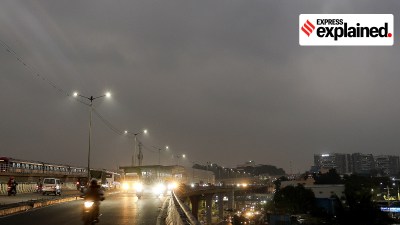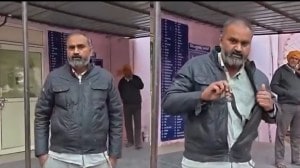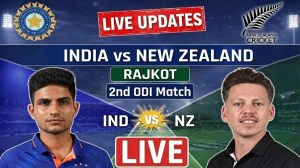Little big man
Kushabhau thakre admits that he understands his limitations. He has excellent reasons for proceeding with caution. Already, he suffers compa...

Kushabhau thakre admits that he understands his limitations. He has excellent reasons for proceeding with caution. Already, he suffers comparison with L.K. Advani, his immediate predecessor, and is inevitably seen as the lesser man. After all the public, outside of Madhya Pradesh, was quite unaware of his existence until his election. His predicament bears a more than passing similarity to that of Sitaram Kesri. Both have won a general election only once. Both were in their own element as backroom boys, rarely seen, almost never heard, but highly respected in their own niche.
The fact that Kesri lost that respect scant months after coming out into the open is probably an important object lesson for Thakre. Compounding his problems is the fact that at this time, the party needs an universally acceptable and visibly dynamic president. Never before has a BJP president been faced with the implications of power, or the need to consolidate it.
The BJP stays in power at the pleasure of its allies. There arestill large tracts of the country where it is yet to extend its network, or where it is simply unacceptable. As a party, its principal objective now should be to increase its reach and influence by striking out into new areas, either at the grassroots or by striking fresh alliances, to see that it is more comfortably placed at the next election.
Either way, the BJP will need a president who can articulately project its new face and show that the divisive issues that the BJP used to increase its support base and public image have been safely put on the back-burner. It might be recalled that after the Babri demolition, the BJP lost the elections in all the states save Rajasthan where it had been the ruling party.
The electorate has clearly shown that a ruling party which promotes an exclusionist policy is unacceptable. The BJP will now need a man who is flexible, and is able to accommodate other parties without compromising his own image.
Kushabhau Thakre will have to fill this rather tall order. He isregarded as one of the leading grassroots-level organisers of the party. In Madhya Pradesh, he commanded a great deal of respect among the rank and file of the party. But organisational skills can only help him with half his job:
extending the base of the party into new territory. Probably for the first time in his life, he will have to communicate with other political organisations at the highest levels.
He will have to step outside the safe, predictable world of the Sangh Parivar and deal with people with whom he has nothing in common, ideologically speaking. And he will have to evolve a common interest with them.
An Advani or a Vajpayee, long used to projecting themselves to the masses and to commanding the respect of partymen all over the country, would have been equal to the job.
It will be much harder for Thakre, who has led a more or less cloistered life and is almost unknown to the public in most parts of the country. But then, authority has an amazing way of rendering people equal to theirjobs.
And anyway, he is a safer choice than more public figures, who would have brought their own ego problems and pet preoccupations to the post.
- 01
- 02
- 03
- 04
- 05































